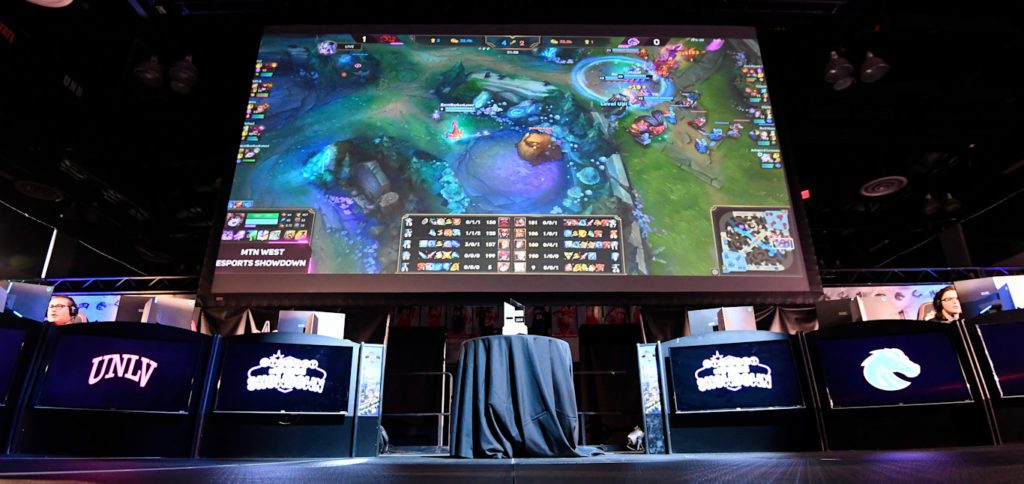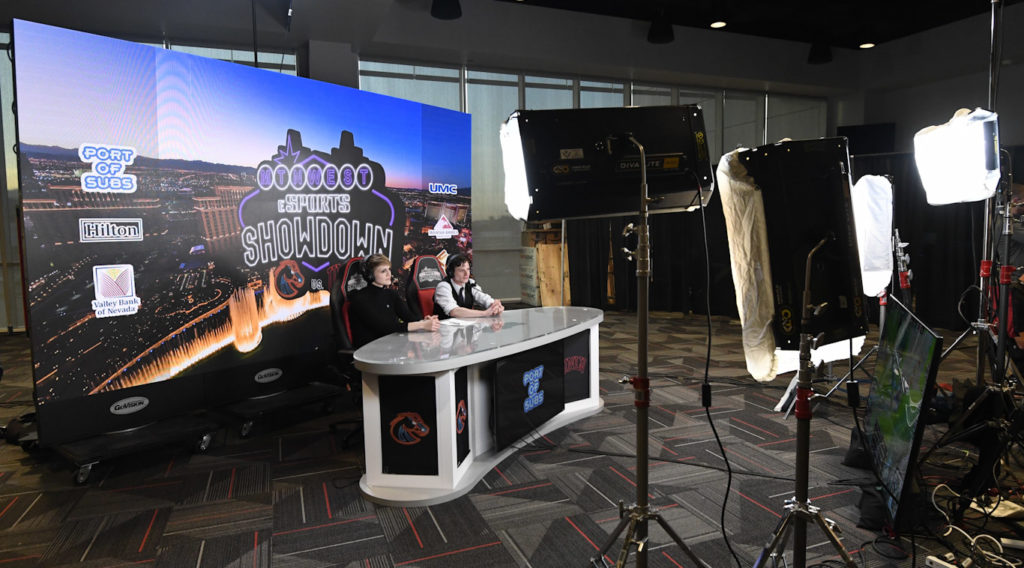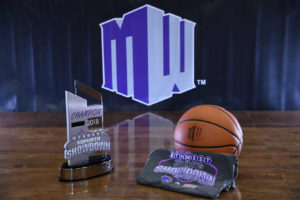
Whenever a competition sells-out an NBA arena, athletic department officials take notice. Colleges around the country have formed teams that train and compete with other institutions in some of the nation’s most popular strategy and battle video games. Now, the Mountain West Conference is finding itself at the forefront.
Last year the Mountain West hosted the first-ever Mountain West eSports Showdown in conjunction with the league’s Men’s and Women’s Basketball Championships in Las Vegas. Because of the success of the event, the conference is planning a showdown for 2019.
“With the Mountain West showdown, we had an opportunity to weave in our eSport competition, showcase them, and introduced esports to our basketball fans,” explains Carolayne Henry, Mountain West Senior Associate Commissioner, and Governance & Legal Affairs. “We had some crossover as well because of a number of eSports fans actually purchased tickets to the basketball games so that they could see each sport.” 
The Mountain West eSports Showdown featured eSports teams from Boise State and UNLV competing in three highly-popular eSports games: League of Legends, Rocket League and Overwatch. The League of Legends World Championships, by the way, filled the Staples Arena in Los Angeles, not long ago.
Several schools have decided eSports is worth investing in, having developed advanced computer labs that allow for groups of scholarship esports athletes to train and compete like any other athletic program.
“The discussion started about a year ago at the December meeting of our board of directors,” explains Henry. “A couple of the board members noted that they had very active esports teams on their campuses.”
Henry says that further sparked a conversation among the conference about the types of students esports attracts.
“In particular the STEM (science, technology, engineering, and mathematics) students. Every president is interested in getting as many good students to their institution’s campus as possible. One way to attract those students is to show various different activities that occur on campus including esports.”
eSports is catching on fast across the world. The numbers are interesting:
-In 2017, the global eSports market was valued at nearly $493 million.
-According to industry estimates, global Esports market revenue will reach $1.65 billion in 2020.
-The biggest eSports markets? Asia and the U.S. In 2016 the U.S. market brought in $275 million.

That’s just in the professional arena. Colleges are just starting to get in on the virtual game, no doubt their numbers will grow along with the gaming industry. Now the question becomes, how long will the NCAA wait to get on board?
“In terms of the NCAA,” says Henry, “I know that they are putting their feelers out. They have a small subcommittee looking at eSports and trying to determine whether or not it would fit in the collegiate model. I’m not sure right now what their future plans are, but I do know that they are discussing it.”
Henry also says that implementing eSports throughout the conference has not been without its challenges. These players often maintain rigorous practice schedules that take up a large chunk of time and many of the teams are co-ed. It’s a whole different ball game so to speak.
 “There was a lot to learn in terms of eSports. I mean, it’s not like a more traditional sport. Basketball will stay basketball. You may have a few rule changes, but the game’s not going to change. For eSports, there could be a game that’s popular this year that might not be popular next year. If you have a group of students, for example, who have scholarships and they’re better at League of Legends and all of a sudden League of Legends isn’t popular anymore, it’s different.”
“There was a lot to learn in terms of eSports. I mean, it’s not like a more traditional sport. Basketball will stay basketball. You may have a few rule changes, but the game’s not going to change. For eSports, there could be a game that’s popular this year that might not be popular next year. If you have a group of students, for example, who have scholarships and they’re better at League of Legends and all of a sudden League of Legends isn’t popular anymore, it’s different.”
Despite the challenges, the Mountain West seems determined to wade into the uncharted waters of esports and attempt to attract fans and student-athletes.
“I don’t know what the future will be, what we’re going to try this year to put on the best possible event and involve as many students as possible,” says Henry.
